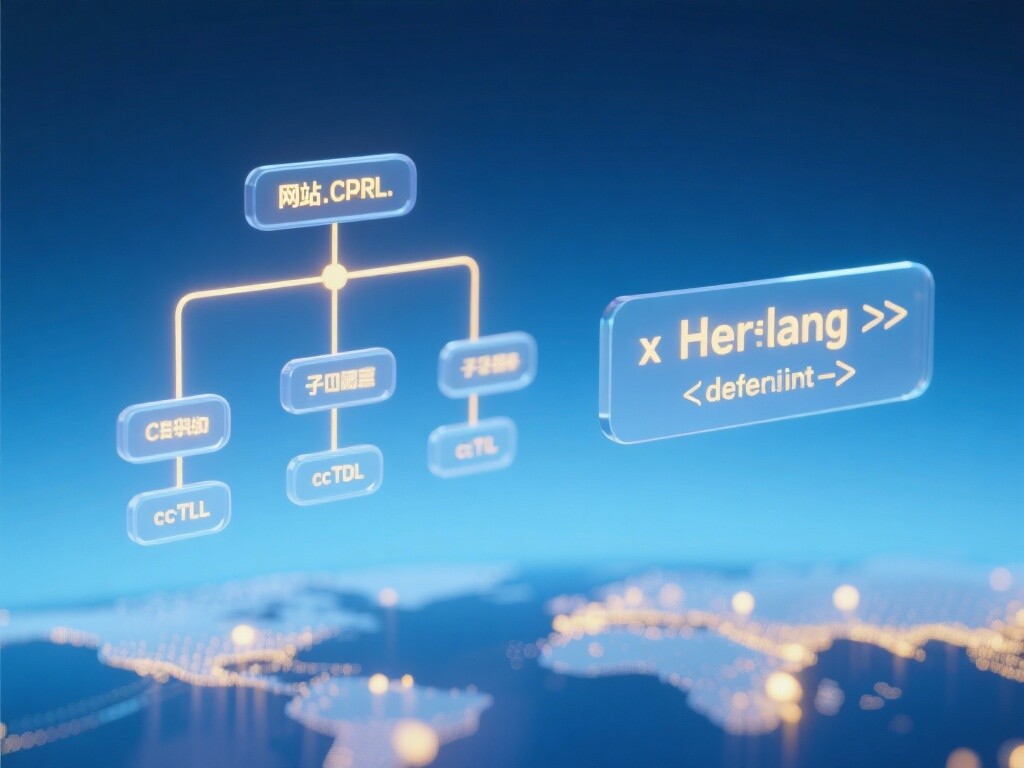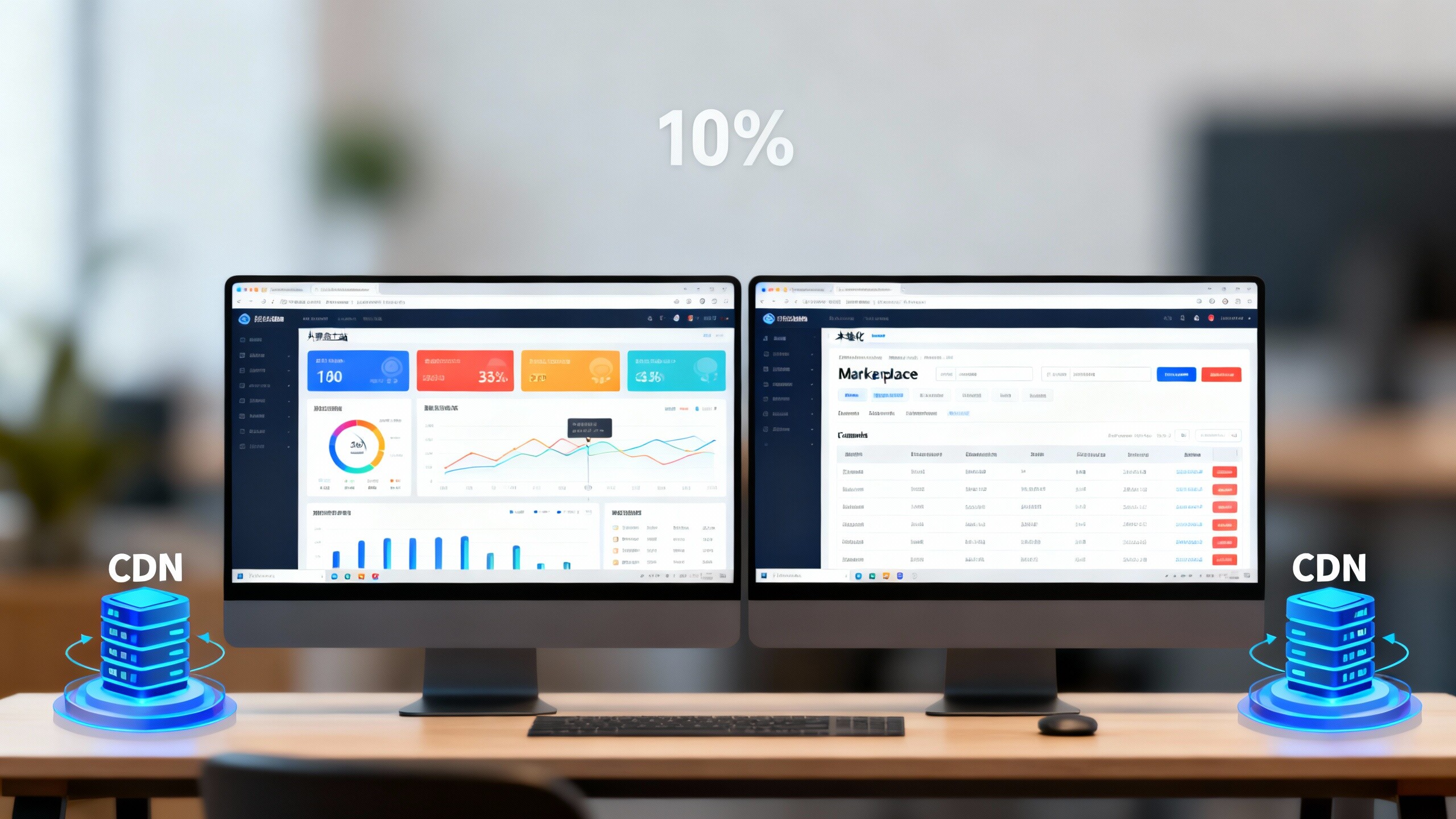I. The authoritative definition, strategic core, and market pain points of building a multilingual independent foreign trade website
1. Authoritative definition and professional elements of building a multilingual independent foreign trade website
**Multilingual independent e-commerce website development** refers to creating multiple website versions under the same core brand, each independently optimized for different target countries or languages, with distinct content, technical architecture, user experience, and SEO strategies. Key professional elements include: correct Hreflang tag deployment, a scientific URL structure (subdirectories/subdomains/ccTLDs), in-depth content localization (not literal translation), multilingual keyword research, and high-performance global CDN deployment.
2. Three irreplaceable strategic values of professional multilingual independent websites
A multilingual strategy is key for foreign trade enterprises to achieve global growth:
- **Break through the red ocean of the English-speaking market and seize the blue ocean of local traffic:** Approximately 70% of global internet users are not native English speakers. Multilingual versions allow businesses to directly capture **the native language keywords used by local users on Google or other local search engines**, resulting in less traffic competition and higher conversion rates.
- **Solve the "Duplicate Content" Penalty and Achieve Global SEO Authority Accumulation:** Through strict **Hreflang specifications**, guide search engines to correctly index different language versions, avoiding misjudgments as **duplicate content** and ensuring effective accumulation of website authority.
- **Building deep local trust and cultural alignment:** Website content and design that conform to the language habits, cultural customs, and laws and regulations of the target market can greatly enhance the brand's **professionalism and trustworthiness** in the minds of local customers.
3. The Development History and Trends of Multilingual Independent E-commerce Websites
Early stage (2000s): Mostly used **"one-click translation" plugins**, resulting in SEO disasters and extremely poor content quality. Mid-stage (2010s): Began using **human translation**, but **lack of Hreflang deployment** led to poor SEO results. Modern stage (2020s to present): The trend is **"AI-assisted translation + professional proofreading + Hreflang standard deployment"**. Emphasis is placed on **multilingual CRO optimization and high-performance delivery via global CDN**.
II. Five Core Technologies and Principles for Building a Multilingual Independent E-commerce Website: Hreflang, Structure, and Localization
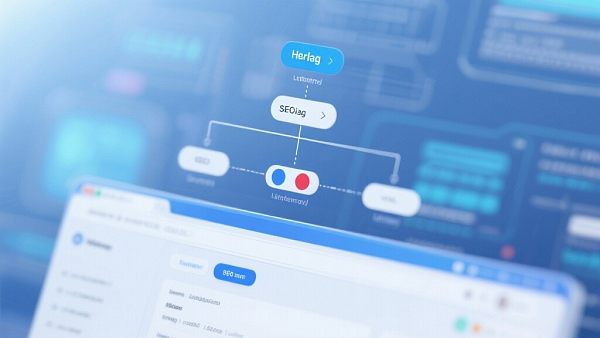
The underlying technical logic for ensuring multilingual independent platforms efficiently acquire traffic in the global market:
1. Hreflang Bidirectional Deployment Principles and Specifications
Principle: Hreflang is Google's officially recommended **multilingual/multiregional SEO tag**. It tells search engines that "these different URLs are **different language or regional versions of the same content**". Practice: Each language version needs to **point to all other language versions**, forming **bidirectional links**. An **x-default tag** must be included as the default version to ensure that regions without a specified default page have an alternative page.
2. Principles of Multilingual URL Structure Selection
Principle: Choose the URL structure that best suits the company's strategy and SEO goals. Practice:
- **Subdirectories:** `example.com/fr/` - **Concentrated SEO weight**, suitable for companies with high brand consistency requirements.
- **Subdomains:** `fr.example.com` - Suitable for businesses with highly diverse content that require dedicated servers or team management.
- **Country Top-Level Domains (ccTLDs):** `example.fr` - **strongest in terms of geographic location**, but has the highest management and domain cost.
3. Content Localization Strategy Principles
Principle: Content is not just about "translation," but also about "adaptation." Practice: Content must be completed by **native speakers of the target market**, ensuring that **keywords, industry terminology, currency symbols, units of measurement (e.g., US vs. metric), and contact information** are completely consistent with local customs. Avoid using **culturally sensitive or ambiguous terms**.
4. Multilingual SEO TDK (Title, Description, Keywords) Optimization Principles
Principle: Each language version must have a **unique, keyword-researched TDK**. Practice: For **non-Latin languages** such as German and Japanese, it is essential to ensure that the keywords have **search volume and commercial value** on local Google or other search engines (such as Yandex in Russia), rather than simply translating the English TDK.
5. Multilingual CRO (Conversion Rate Optimization) Differentiation Principles
Principle: Different cultural regions have different preferences for conversion methods. Practice: The Spanish version may prefer **WhatsApp live chat**; the German version may prefer **email or detailed B2B forms**; websites need to **customize Call-to-Action (CTA) and inquiry forms** for different language versions.
III. Four Core Technological Features and Applications of Building a Multilingual Independent Foreign Trade Website
1. Technical Features: Automatic Language Redirection and User Experience
Features: Users should be automatically redirected to the most appropriate language version upon access. Application: Use **IP geolocation or browser language settings** for **smart redirection**, while **clearly displaying a language switch button on the homepage**. However, it's important to note that redirection should adhere to **Google's SEO guidelines** to avoid unnecessary SEO penalties.
2. Application Practice: High-Performance Global CDN Deployment
Application: Serving global users with a multilingual independent website, **website speed is paramount**. A high-speed CDN with **global nodes** must be used to ensure that users in Europe, South America, and Asia experience **Core Web Vitals (CWV)** standard loading speeds when accessing their local language versions.
3. Application Practice: Multilingual Comments and UGC Management
Application: The website needs to support **independent display and management of user comments and UGC (user-generated content) in different language versions**. This helps increase local users' trust in the language version while providing search engines with **fresh, localized content**.
4. Application Practice: Localization of Legal Texts and Compliance
Application: Multilingual versions must include **localized privacy policies, terms of service, and cookie statements**. For example, for the EU market, legal texts compliant with **GDPR** must be provided, and their **translation must be accurate and legally valid**.
IV. Comparative Analysis of Professional Multilingual Websites vs. Traditional Translation Websites and Industry Scenarios
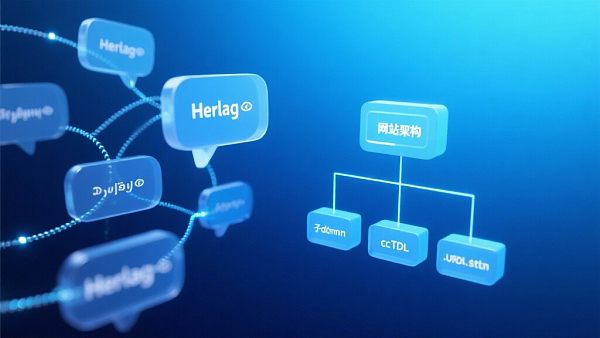
1. Comparative Analysis of Professional Multilingual Websites vs. Traditional Translation Websites
2. Typical industry scenarios for multilingual independent e-commerce websites
Multilingual independent websites are key to global business expansion for the following foreign trade industries:
- **Industrial Equipment and Machinery Manufacturing:** Targeting professional B2B inquiries from Germany (German), Russia (Russian), Brazil (Portuguese), and other regions.
- **Cross-border DTC Brand:** Targeting B2C orders from Japan (Japanese), South Korea (Korean), France (French), and other regions.
- **Software Services and Technical Consulting:** Technical cooperation and solutions for specific languages (such as Spanish and Arabic) worldwide.
3. Standard Certification and Professional Specifications for Multilingual Independent Website Building Services
Criteria for evaluating high-quality multilingual independent website building service providers:
- **Hreflang deployment success rate:** Provides **Hreflang bug reports on Google Search Console**.
- **Native Language Expert Resources:** We have a team of industry-specific native language content writers and proofreaders covering the target language.
- **Global CDN Partnership:** We utilize leading international CDN service providers to ensure **global access speed and CWV compliance**.
5. Stop wasting bandwidth and upgrade to a professional Hreflang multilingual independent website immediately!
Is your multilingual website suffering SEO penalties due to **Hreflang errors**? Are you missing out on high-value local customers because of **machine translation**? Our professional **multilingual e-commerce website building solutions** provide you with **global SEO architecture, in-depth localized content, and high-conversion CRO optimization**! Sign up now for a **free "Multilingual E-commerce Website Hreflang Technical Diagnosis"** and unlock your global traffic potential!
Click to get a free Hreflang diagnostic reportFAQ
1. What serious SEO consequences can result from Hreflang deployment errors?
Answer: The most serious consequence of a Hreflang deployment error is a **duplicate content penalty**. Google may be unable to distinguish which version should rank in which region, resulting in **SEO weight being diluted across all language versions**, potentially leading to a **significant drop in rankings or complete non-indexing** for all multilingual pages.
2. Should I choose a subdirectory or a subdomain to build a multilingual website?
Answer: **Subdirectories (e.g., example.com/fr/)** are generally considered the optimal choice for SEO because they concentrate SEO authority across all language versions under the main domain, making management more centralized. **Subdomains (e.g., fr.example.com)** have advantages in terms of technical separation and localized geographic targeting, but the authority is dispersed and deployment is more complex.
3. How can we ensure that multilingual content is truly "localized" and not machine-translated?
Answer: True localization requires a **"human + AI" model.** First, AI-assisted translation is used, followed by human proofreading by **native speakers or industry experts in the target market** to ensure **accurate industry terminology, natural tone, and cultural compliance**, and the **implementation of local keywords**.
4. How much more expensive is it to build a multilingual independent website compared to a single-language website?
Answer: The high cost of a multilingual independent website mainly lies in the **technical architecture (Hreflang deployment, URL structure), content localization (translation and proofreading), and subsequent operation and maintenance**. Initial technical setup costs typically increase by 30% to 50%, but **in the long run, the resulting targeted local traffic and high conversion rate ROI far outweigh the cost**.
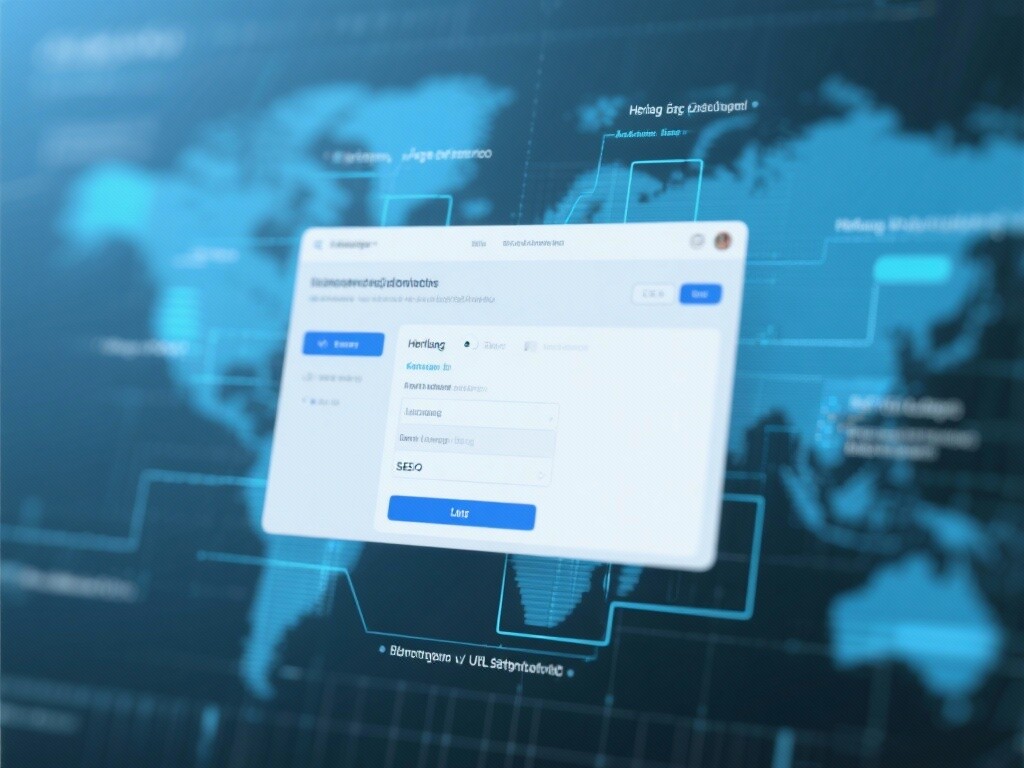
Customer Reviews
General Manager Zhang, Industrial Machinery Equipment Exporter
"Previously, our Russian and Spanish versions had almost no traffic. After their professional **hreflang deployment and subdirectory structure optimization**, the website completely resolved the duplicate content issue. Now, **traffic to the Russian site has increased by 120% in just 4 months**, bringing a large number of high-value B2B inquiries!"
General Manager Li, DTC Home Goods Brand Director
"What impressed me most was the **localization of content**. Their Japanese and German experts deeply optimized our products, with keywords better aligned to local search habits, significantly improving users' perception of the website's **professionalism and trustworthiness**. **Conversion rates in European and Japanese markets have increased by nearly 50% compared to before**."
![Can an all-in-one marketing platform replace multiple tools? 1 backend manages 10 functions Can an all-in-one marketing platform replace multiple tools? 1 backend manages 10 functions]() Can an all-in-one marketing platform replace multiple tools? 1 backend manages 10 functionsCan an all-in-one marketing platform replace multiple tools? EasyYun integrates AI+SEO dual-engine optimization system, AI+SEM smart advertising, global CDN acceleration and SSL certificate installation, supports multilingual foreign trade independent website construction, and helps enterprises efficiently expand overseas. Say goodbye to tool fragmentation and achieve full-chain collaboration in website building, optimization, and promotion. Currently recruiting city partners and EasyYun agent alliance policies, empowering B2B foreign trade website construction and localized marketing, reducing costs and increasing efficiency, and quickly deploying global markets.
Can an all-in-one marketing platform replace multiple tools? 1 backend manages 10 functionsCan an all-in-one marketing platform replace multiple tools? EasyYun integrates AI+SEO dual-engine optimization system, AI+SEM smart advertising, global CDN acceleration and SSL certificate installation, supports multilingual foreign trade independent website construction, and helps enterprises efficiently expand overseas. Say goodbye to tool fragmentation and achieve full-chain collaboration in website building, optimization, and promotion. Currently recruiting city partners and EasyYun agent alliance policies, empowering B2B foreign trade website construction and localized marketing, reducing costs and increasing efficiency, and quickly deploying global markets.![No traffic for your independent foreign trade website? 90% of people overlook these 3 key settings No traffic for your independent foreign trade website? 90% of people overlook these 3 key settings]() No traffic for your independent foreign trade website? 90% of people overlook these 3 key settingsNo traffic for your independent foreign trade website? 90% of people overlook critical technologies like SSL certificate installation and global CDN acceleration. EasyStore, an all-in-one marketing platform, integrates AI+SEO dual-engine optimization and AI+SEM intelligent ad marketing systems to help multilingual foreign trade websites efficiently acquire customers. Supports automatic SSL deployment, global node acceleration, smart translation, and auto-generated TDK to improve search rankings and conversion rates. Now open for city partner recruitment and EasyStore agent partnership policies to empower enterprises in going global and seizing cross-border market opportunities.
No traffic for your independent foreign trade website? 90% of people overlook these 3 key settingsNo traffic for your independent foreign trade website? 90% of people overlook critical technologies like SSL certificate installation and global CDN acceleration. EasyStore, an all-in-one marketing platform, integrates AI+SEO dual-engine optimization and AI+SEM intelligent ad marketing systems to help multilingual foreign trade websites efficiently acquire customers. Supports automatic SSL deployment, global node acceleration, smart translation, and auto-generated TDK to improve search rankings and conversion rates. Now open for city partner recruitment and EasyStore agent partnership policies to empower enterprises in going global and seizing cross-border market opportunities.![5 Steps to Build a High-Converting Foreign Trade Independent Website: Practical Guide for Multilingual Foreign Trade Independent Website Construction 5 Steps to Build a High-Converting Foreign Trade Independent Website: Practical Guide for Multilingual Foreign Trade Independent Website Construction]() 5 Steps to Build a High-Converting Foreign Trade Independent Website: Practical Guide for Multilingual Foreign Trade Independent Website ConstructionFive steps to build a high-converting foreign trade independent website, integrating global server acceleration, AI localization, and multilingual SEO optimization services to address pain points such as slow loading, language barriers, and low traffic conversion. We provide multilingual foreign trade independent website construction and multilingual website development solutions, combining multilingual SEO optimization, SEM optimization techniques, and landing page CRO to assist in brand promotion and foreign trade independent website operations, creating a multilingual website as a foreign trade marketing tool. Contact us now for a free diagnosis and trial, quickly improving inquiry and order conversion.
5 Steps to Build a High-Converting Foreign Trade Independent Website: Practical Guide for Multilingual Foreign Trade Independent Website ConstructionFive steps to build a high-converting foreign trade independent website, integrating global server acceleration, AI localization, and multilingual SEO optimization services to address pain points such as slow loading, language barriers, and low traffic conversion. We provide multilingual foreign trade independent website construction and multilingual website development solutions, combining multilingual SEO optimization, SEM optimization techniques, and landing page CRO to assist in brand promotion and foreign trade independent website operations, creating a multilingual website as a foreign trade marketing tool. Contact us now for a free diagnosis and trial, quickly improving inquiry and order conversion.![7 Optimization Strategies for High-Converting Foreign Trade Independent Websites, 3x Increase in Inquiry Rate 7 Optimization Strategies for High-Converting Foreign Trade Independent Websites, 3x Increase in Inquiry Rate]() 7 Optimization Strategies for High-Converting Foreign Trade Independent Websites, 3x Increase in Inquiry RateHigh-Converting Foreign Trade Independent Website Development, integrating global CDN acceleration and multilingual foreign trade independent website construction, proposes seven actionable optimization strategies: information architecture, performance & CDN, intelligent multilingual localization, content & SEO automation, form closure loops & data-driven. Supported by AI+CRM closed loops and real-world case studies, helping B2B businesses achieve a 3x increase in inquiry rates within a short period, with support for multilingual website delivery in Ningbo/Wuxi and other regions. Click to learn about landing solutions and free diagnostics, quickly embark on the path to high-conversion overseas success.
7 Optimization Strategies for High-Converting Foreign Trade Independent Websites, 3x Increase in Inquiry RateHigh-Converting Foreign Trade Independent Website Development, integrating global CDN acceleration and multilingual foreign trade independent website construction, proposes seven actionable optimization strategies: information architecture, performance & CDN, intelligent multilingual localization, content & SEO automation, form closure loops & data-driven. Supported by AI+CRM closed loops and real-world case studies, helping B2B businesses achieve a 3x increase in inquiry rates within a short period, with support for multilingual website delivery in Ningbo/Wuxi and other regions. Click to learn about landing solutions and free diagnostics, quickly embark on the path to high-conversion overseas success.![What are the challenges of operating an independent e-commerce website? 7 common pain points and multilingual website solutions. What are the challenges of operating an independent e-commerce website? 7 common pain points and multilingual website solutions.]() What are the challenges of operating an independent e-commerce website? 7 common pain points and multilingual website solutions.The pain points of operating an independent e-commerce website lie in multi-dimensional challenges such as multilingualism, localization, keyword optimization, and loading speed. We offer multilingual e-commerce website building and development services, global server acceleration, and multilingual SEO optimization. Combining AI automation and SEM optimization techniques, we help brands promote themselves, reduce customer acquisition costs, and improve global conversion rates. From technical SEO audits and intelligent TDK generation to batch content production and localized landing pages, our one-stop solution makes operating an independent e-commerce website more controllable. Want to transform your multilingual website, a powerful tool for e-commerce marketing, into a stable traffic and conversion engine? Click to get a free diagnostic and customized solution.
What are the challenges of operating an independent e-commerce website? 7 common pain points and multilingual website solutions.The pain points of operating an independent e-commerce website lie in multi-dimensional challenges such as multilingualism, localization, keyword optimization, and loading speed. We offer multilingual e-commerce website building and development services, global server acceleration, and multilingual SEO optimization. Combining AI automation and SEM optimization techniques, we help brands promote themselves, reduce customer acquisition costs, and improve global conversion rates. From technical SEO audits and intelligent TDK generation to batch content production and localized landing pages, our one-stop solution makes operating an independent e-commerce website more controllable. Want to transform your multilingual website, a powerful tool for e-commerce marketing, into a stable traffic and conversion engine? Click to get a free diagnostic and customized solution.![What kind of traffic can multilingual SEO optimization services help you improve? Real case studies with data comparison What kind of traffic can multilingual SEO optimization services help you improve? Real case studies with data comparison]() What kind of traffic can multilingual SEO optimization services help you improve? Real case studies with data comparisonThrough multilingual SEO optimization services and the construction of multilingual foreign trade independent websites, combined with global server acceleration and refined SEM optimization techniques, we achieve measurable growth in brand promotion and the operation of foreign trade independent websites. A real case study shows a 72% increase in organic traffic within three months and an 85% improvement in high-intent inquiries. We provide multilingual website construction, AI-driven content, and technical SEO implementation solutions to help turn your multilingual website into a powerful tool for foreign trade marketing. Click to learn about customized diagnostics and start your journey to precise traffic and low-cost customer acquisition.
What kind of traffic can multilingual SEO optimization services help you improve? Real case studies with data comparisonThrough multilingual SEO optimization services and the construction of multilingual foreign trade independent websites, combined with global server acceleration and refined SEM optimization techniques, we achieve measurable growth in brand promotion and the operation of foreign trade independent websites. A real case study shows a 72% increase in organic traffic within three months and an 85% improvement in high-intent inquiries. We provide multilingual website construction, AI-driven content, and technical SEO implementation solutions to help turn your multilingual website into a powerful tool for foreign trade marketing. Click to learn about customized diagnostics and start your journey to precise traffic and low-cost customer acquisition.![From 0 to 1: Deploy global server acceleration to boost multilingual website speed by 50% with proven steps From 0 to 1: Deploy global server acceleration to boost multilingual website speed by 50% with proven steps]() From 0 to 1: Deploy global server acceleration to boost multilingual website speed by 50% with proven stepsThis guide details how to deploy global server acceleration from scratch, integrating multilingual website development with multilingual independent foreign trade site construction. It provides multilingual SEO optimization services, SEM optimization techniques, and supports brand promotion and independent foreign trade site operations, transforming multilingual websites into powerful marketing tools for foreign trade. Through DNS/CDN, caching, and protocol optimization, access speeds can increase by approximately 50%, significantly improving conversion rates and ROI. Want to turn page speed into business returns? Contact us now for customized landing solutions.
From 0 to 1: Deploy global server acceleration to boost multilingual website speed by 50% with proven stepsThis guide details how to deploy global server acceleration from scratch, integrating multilingual website development with multilingual independent foreign trade site construction. It provides multilingual SEO optimization services, SEM optimization techniques, and supports brand promotion and independent foreign trade site operations, transforming multilingual websites into powerful marketing tools for foreign trade. Through DNS/CDN, caching, and protocol optimization, access speeds can increase by approximately 50%, significantly improving conversion rates and ROI. Want to turn page speed into business returns? Contact us now for customized landing solutions.![Multilingual Independent Foreign Trade Website Building vs. Localized Marketplace: Which is More Suitable for Your Brand Promotion? Multilingual Independent Foreign Trade Website Building vs. Localized Marketplace: Which is More Suitable for Your Brand Promotion?]() Multilingual Independent Foreign Trade Website Building vs. Localized Marketplace: Which is More Suitable for Your Brand Promotion?Struggling with overseas promotion? Multilingual independent foreign trade website building can serve as the core of long-term brand promotion. Combined with multilingual website construction and global server acceleration, it enhances page experience and organic traffic. With multilingual SEO optimization services and SEM optimization techniques, it achieves synergy between paid and organic traffic, strengthening the operation and conversion of independent foreign trade websites. For rapid customer acquisition, localized Marketplaces remain supplementary channels. Want to know which strategy better suits your brand and get customized solutions for multilingual foreign trade marketing websites? Contact us now for a free diagnosis and actionable recommendations.
Multilingual Independent Foreign Trade Website Building vs. Localized Marketplace: Which is More Suitable for Your Brand Promotion?Struggling with overseas promotion? Multilingual independent foreign trade website building can serve as the core of long-term brand promotion. Combined with multilingual website construction and global server acceleration, it enhances page experience and organic traffic. With multilingual SEO optimization services and SEM optimization techniques, it achieves synergy between paid and organic traffic, strengthening the operation and conversion of independent foreign trade websites. For rapid customer acquisition, localized Marketplaces remain supplementary channels. Want to know which strategy better suits your brand and get customized solutions for multilingual foreign trade marketing websites? Contact us now for a free diagnosis and actionable recommendations.

